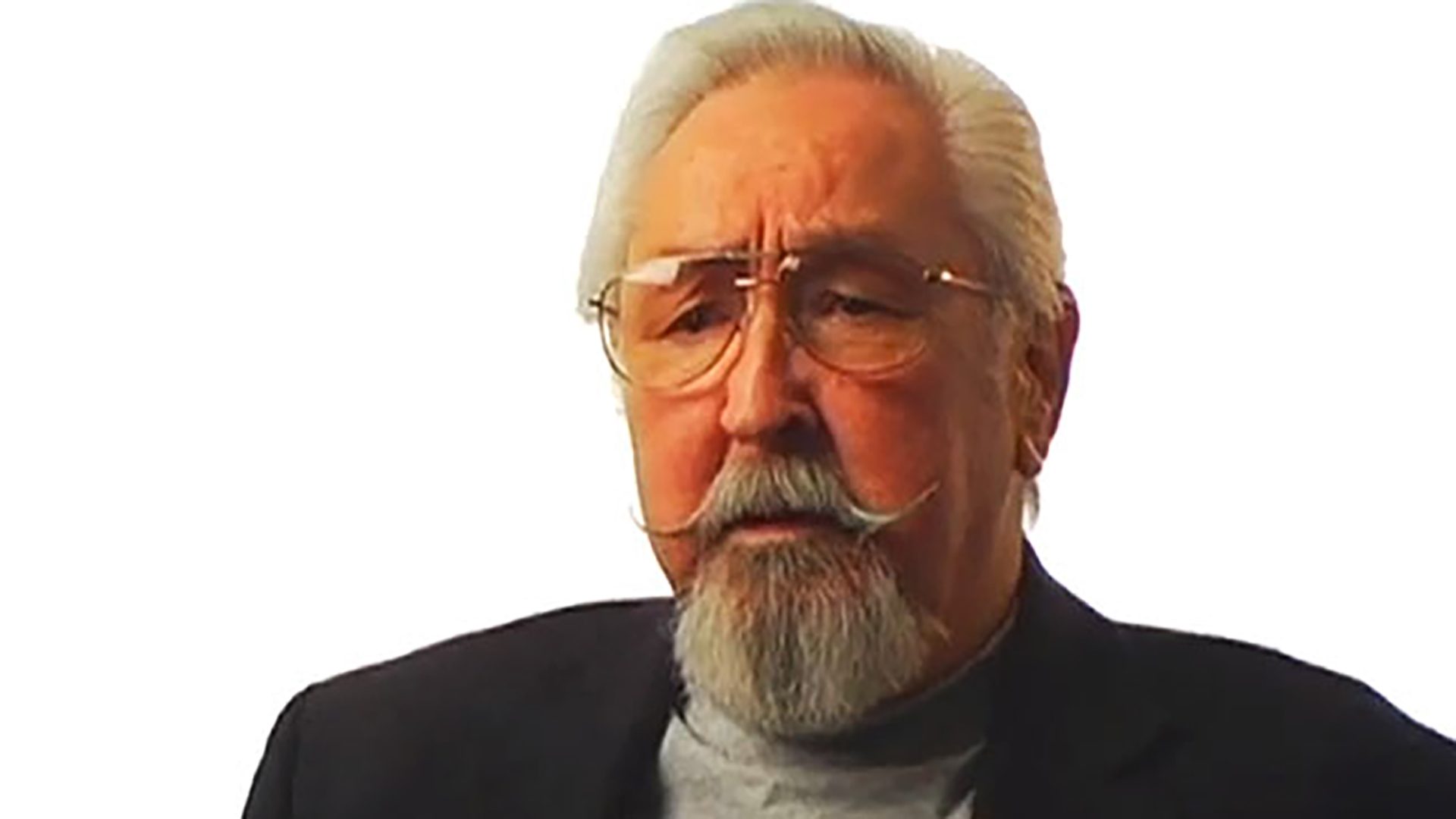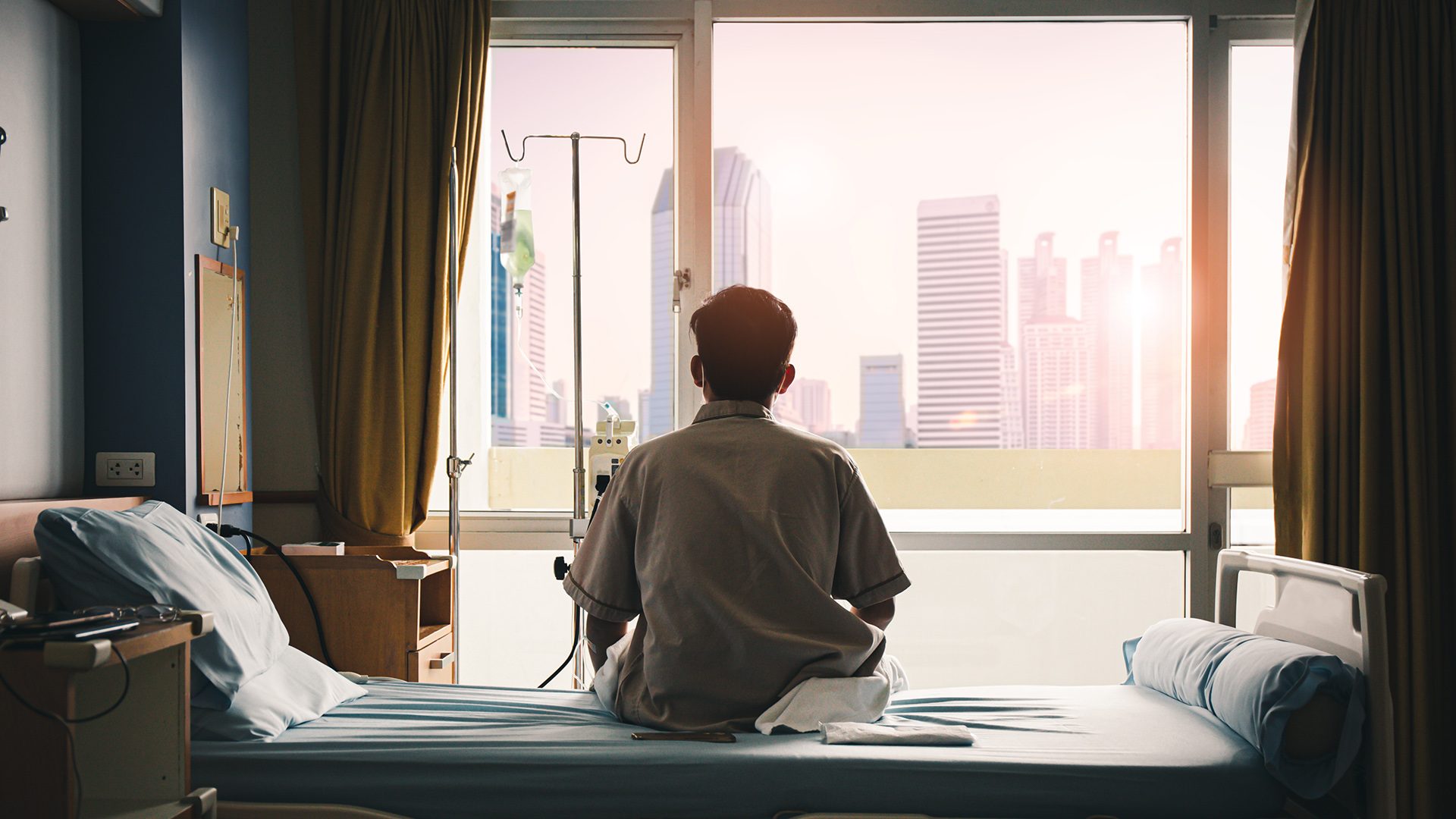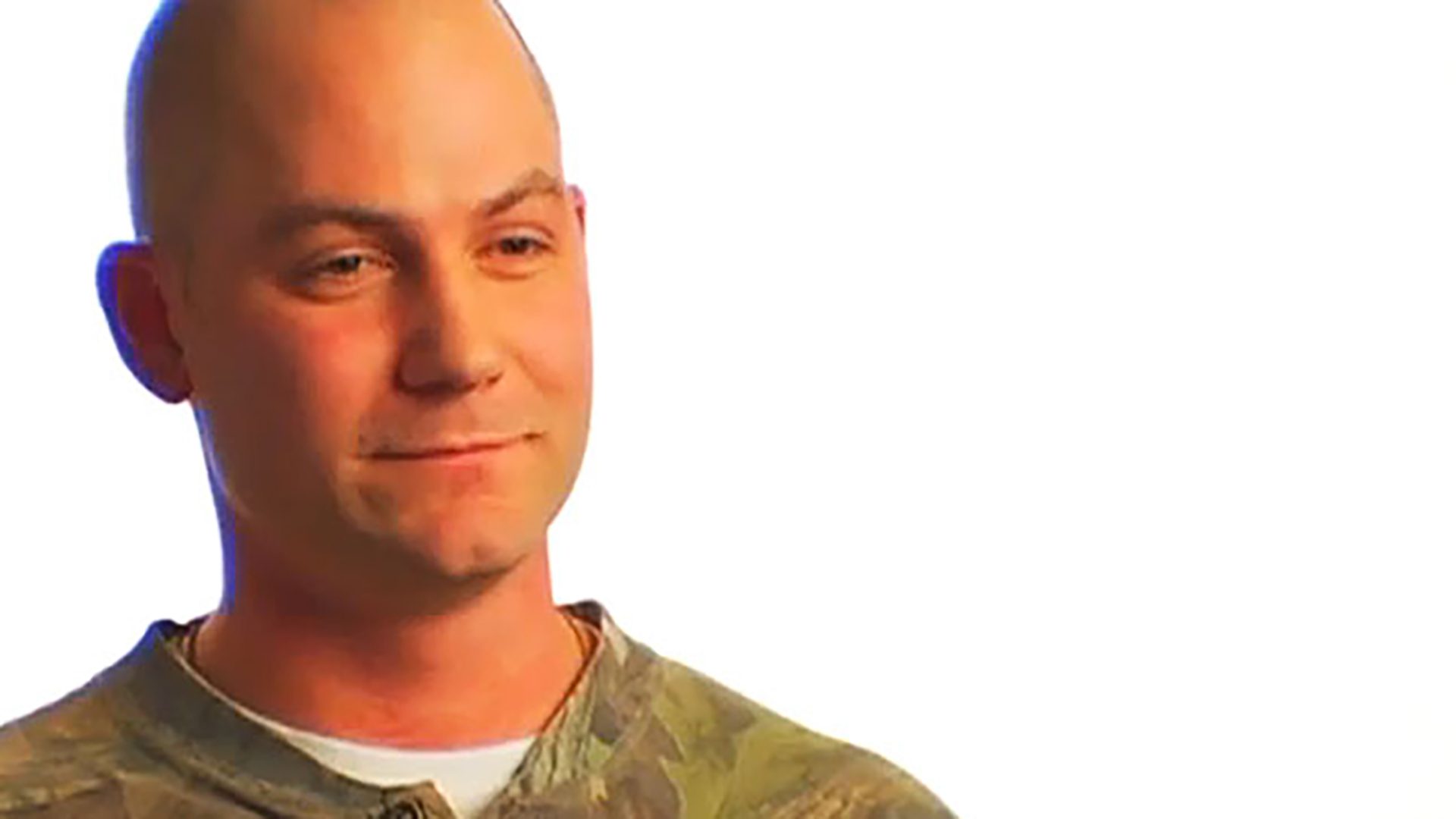Survivor Interview – Larry A.
Larry is a lung cancer survivor. He talks about maintaining healthy behaviors during treatment, aftereffects of treatment, and facing family financial issues.

I became a lung cancer survivor when I was diagnosed in 1996.
When they first diagnosed me, I knew in my heart that I was gonna pull through this. About 20 days after the doctor discovered it, they put me in the hospital and operated on me. He says when he went in to take the tumor out, it had started to grow on my ribs. He said it just fell right off. I was very fortunate, because I caught it early. The only suffering I ever did was from the aftereffects from the operation. It was pretty bad. They took the upper right lobe off my lung. I don’t think it really has affected the way I live my life because I went back to work about two months after I got out of the hospital.
When I went through my radiation treatments, I’d go to the mall and I’d force myself to walk. Every day. I started out with a cane. You walk around that mall eight and nine times, you get three miles. Pretty soon, I was doing three miles a day. Since then, I’ve always tried to keep myself in shape. I don’t drink, and I don’t smoke. That was the key to my success in this cancer, keeping ahead of the game and trying to keep myself physically in good shape.
In the last six months, I went to do some sport fishing. I caught a bug, and I got a lung infection. It was progressing a little bit on me. So they put me on oxygen. I have a portable machine because I want to try to overcome this infection I got in my lung. I don’t know if I’ll ever get away from that, but I’m sure gonna try to get away from that machine and do everything on my own. I believe that breathing exercises and keeping physically active and walking will help. When you’re 72 years old, all the old wounds are coming back on you. But I have to cope with it and I do. I try to, anyway.
After the operation, my chest area was so sensitive. I couldn’t lay on my bed. I went through probably three weeks of this before they discovered how to correct it. I couldn’t wear a shirt. If I wore a shirt, it would hurt so bad, tears would come to my eyes. I had a hard time sleeping. I had to sit up in a recliner to sleep. At one time, I was almost three days without sleep because of the pain. They were giving me medication, but I forced myself to stop because it was becoming addictive to me. I didn’t like the reaction that I was getting and the weird feelings I was getting from the medication.
I had gone back to the emergency room two to four times a week. Finally, they diagnosed it and came up with the idea of using this real hot medication to rub on my chest. It took about five days before it start easing off. Before that, they took me to a pain specialist, and tried to block some nerves but with no success. That was the only real problem that I had after the operation.
As far as my physical condition after that, it took me about five months to get almost back into shape where I can go back to work and live a normal everyday life. Like going clam digging, fishing down on the peninsula, hiking, or taking my boys out bike riding. So far, thank God, it hasn’t come back.
I don’t know how it happened, but I just knew in my heart that I was gonna be okay. It wasn’t gonna take my life away. I just knew it. It was so positive in my mind that I just knew it, that’s all. I never went through any programs. I just program myself. It seemed to work pretty good.
The only people that I talked to, I tried to encourage them to have a positive attitude about their sickness. A couple of the friends of mine, I told them, “You just can’t sit there and feel sorry for yourself. The more you feel sorry for yourself, the further down you’re gonna get.” You have to have a real positive attitude about anything in life. When your mind is made up to do what you have to do, you do it. If it works out, it works out. If mine didn’t work out, then I’d have to accept my fate. I learned to do that a long time ago. You can’t go through the rest of your life worrying about how you’re gonna survive. You have to get out there and do it and survive. That’s the way I think it is. I’ve seen a lot of people with cancer in this state of Alaska, quite a few from my hometown. I’m from Cordova, born and raised there. It’s sad. I’m just one of the fortunate people that survive.
I’m on Social Security now. I’ve been on it since I was 65. I’ve had a few financial problems, especially with trying to make payments on automobiles. At the time when I was diagnosed, I was in the process of moving to Nome with my wife. She is from Nome and was up there ahead of me. I was in the process of moving there. Unfortunately, it didn’t work out, so we got divorced. She’s quite a few years younger than I am. I think it was bad timing. But she stuck by me through my whole cancer ordeal.
My name is Larry Allen and I’m an eight-year lung cancer survivor.

